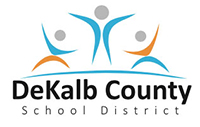The Principal Advisory Council is subject to Georgia’s Open Meetings Act. A meeting for the purposes of the Open Meetings Act is defined as a quorum of the voting members of the Council at which any public matter, official business, or policy is to be formulated, discussed, presented, or voted upon. A committee which is comprised of a majority of the voting members of the Council is also subject to the Open Meetings Act.
All meetings are open unless otherwise provided by law (OCGA 20-2-86(f) and OCGA 50-14-1). Regular meetings may be cancelled or postponed without notice. The Council must:
- Post a public announcement of the times, dates and place of all regular meetings for the school year in a conspicuous location at the school and on the Principal Advisory Council webpage located on the school’s District-provided school website;
- Give written or electronic notice of the time, place, and date of a specific Council meeting to the Council members at least seven days prior to a regular meeting.
Council meeting agendas must:
- Include the time, date, and place as well as all matters expected to come before the Council; and
- Be posted at least seven days prior to the meeting, at the meeting site, and on the Principal Advisory Council webpage located on the school’s District-provided school website.
Note: Failure to include an item on the agenda that becomes necessary to address during the meeting does not prohibit the Council from amending the agenda and considering and acting upon the item.
Council meeting summaries must:
- Include the subjects acted on and the members present at the meeting,
- Be written, and
- Be posted on the Principal Advisory Council webpage located on the school’s District-provided school website within two business days of the adjournment of the meeting.
Council meeting minutes must:
- The names of Council members present, the description of each motion or other proposal made during the meeting, names of those individuals making and seconding each motion or proposal, and a record of all votes taken;
- The name of each person voting for or against each motion or proposal, or abstaining from voting on each motion or proposal;
- Be sent to Council members within 20 days following each Council meeting;
- Be approved by the Council no later than the next regular Council meeting and be posted on the Principal Advisory Council webpage located on the school’s District-provided website within two business days of the adjournment of the meeting; and
- Be kept on file at the school office for anyone to request to review.
Note: Visual and/or sound recording of Open Meetings will be permitted.
Executive Session (Closed Meeting)
Meetings, or a portion of a meeting, may be closed to the public (an “executive session”) ONLY if the Superintendent or his or her designee requests an executive session for matters related to the purchase, disposition or lease of property or real estate; personnel matters except for the receipt of evidence or when hearing argument on personnel matters including imposing disciplinary action or to dismiss an employee or discussing matters of policy regarding employment or hiring practices; or any other matter covered by attorney-client privilege.
In the unlikely event that the Superintendent requests an Executive Session of the Council, the following procedures must be followed:
- A majority vote of a quorum present for a Council meeting is necessary to close the meeting.
- One of the above listed reasons must be specified for closing the meeting and recorded in the minutes.
- Minutes must reflect the names of the Council members present and the names of those voting to close the meeting which should be posted on the Principal Advisory Council webpage located on the school’s District-provided school website.
- Only the portion of the meeting that deals with the above listed reasons will be closed; other portions of the meeting must be open, and minutes shall be taken, recorded and open for public inspection as detailed above.
- When a meeting or portion of a meeting is closed, the Council Chair will execute and file with the minutes of the meeting a notarized affidavit stating under oath that the closed portion of the meeting dealt with the above listed reasons.
- If one or more persons in Executive Session starts a discussion not authorized under the Open Meetings exceptions, the Council Chair shall immediately rule the discussion out of order.
- If one or more persons continues the discussion, Council Chair shall immediately adjourn the Executive Session.
Violation of Open Meetings Act
- Superior courts have jurisdiction to enforce the Open Meetings law; the attorney general has the authority to bring law enforcement actions, criminal or civil.
- If a superior court determines that a Council has not complied with the act, the court will—unless special circumstances exist—assess in favor of the complaining party reasonable attorney’s fees and other litigation costs.
- Any individual knowingly and willfully conducting or participating in a meeting in violation of the Open Meetings act is guilty of a misdemeanor and, upon conviction, may punished by a fine not to exceed $1000.00.
Alternatively, a civil penalty may be imposed by the court in any civil action brought pursuant to this chapter against any person who negligently violates the terms of this chapter in an amount not to exceed $1,000.00 for the first violation. A civil penalty or criminal fine not to exceed $2,500.00 per violation may be imposed for each additional violation that the violator commits within a 12-month period from the date that the first penalty or fine was imposed.
References


